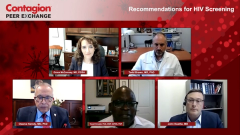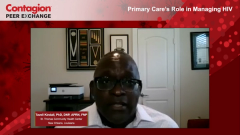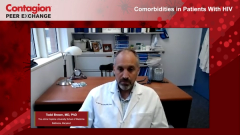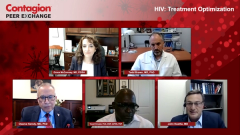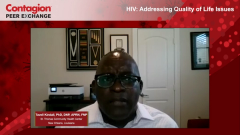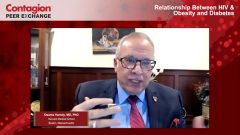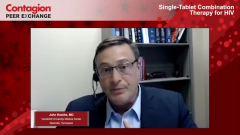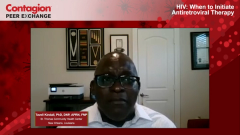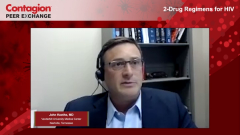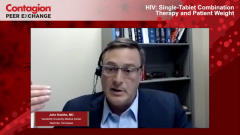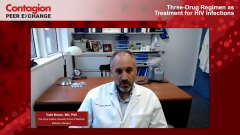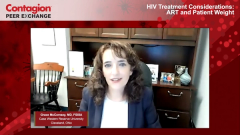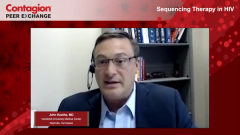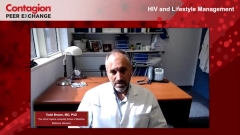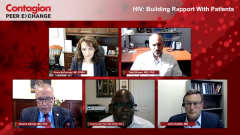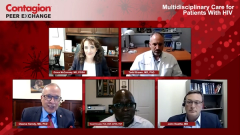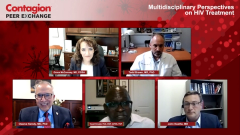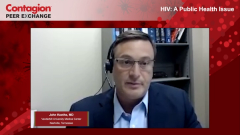
Primary Care’s Role in Managing HIV
A discussion regarding the benefits of training primary care physicians, nurse practitioners, and physician assistants on strategies to help manage patients with HIV infections.
Episodes in this series

Grace McComsey, MD, FIDSA: Staying with you, Tavell, I know you mentioned you’re a Doctor of Nursing practice. Recent data have shown that a very small percentage of PCPs [primary care physicians] provide HIV care. Most of them don’t want deal with HIV still. For NPs [nurse practitioners] or even physician assistants [PAs], where is their place in managing HIV? Do you think they need additional training? I’m not talking about someone like you who has done it for a long time and teaches others, but someone who’s starting, a new nurse practitioner or PA. Is it a good idea to train them so they can start providing care to patients with HIV? As John said, the number is increasing, so we need more providers to take care of these patients.
Tavell Kindall, PhD, DNP, APRN, FNP: It’s interesting you made this statement regarding providers not wanting to treat HIV, that’s how I got started. It was a job that was available that no one else wanted. I have really enjoyed my professional experiences in caring for people living with HIV. It’s been one of my greatest journeys in my career. But I do believe that nurse practitioners and physician assistants should consider it. Essentially, when you start to think that a lot of the leading authorities, and this is also in the literature, talk about the lack of qualified health care providers available to treat HIV. What happens, and I can only speak to the nurse practitioner education and training model, it could be that a number of the programs preparing candidates for entry to advanced practice, they give very little training with regard to HIV treatment, if any. What they do get, though, is how to diagnose, how to order appropriate testing, and when to order appropriate testing, and making sure they understand to follow the recommended guidelines available as they relate to HIV testing across a lifespan. But beyond that, with regard to treatment, once that infection is found, the expectation is that the provider will refer.
What becomes interesting is that there may not be a referral source that’s readily available, and when you start to think about if that is the case, what are you going to do in the meantime? Are you going to allow this patient to remain viremic in your care until you get them to where they need to be? Or can you safely start them on something and get them going in the right direction until you can get them where they need to be? In some of our rural communities, we’re starting to see HIV incidence and prevalence, and I don’t think anyone needs to think that none of these things are occurring in our rural communities. And where nurse practitioners and PAs may be in terms of working in those areas, I believe they should have some fundamental training to go ahead and at least safely work a patient up and get them initiated on antiretroviral therapy until they can get someplace where they can receive more specialized care.
Grace McComsey, MD, FIDSA: Thank you for watching this ContagionLive® Peer Exchange. If you enjoyed the content, please subscribe to the e-newsletter so you can receive upcoming Peer Exchanges and other great content. Thank you for listening.
Transcript Edited for Clarity
Newsletter
Stay ahead of emerging infectious disease threats with expert insights and breaking research. Subscribe now to get updates delivered straight to your inbox.

